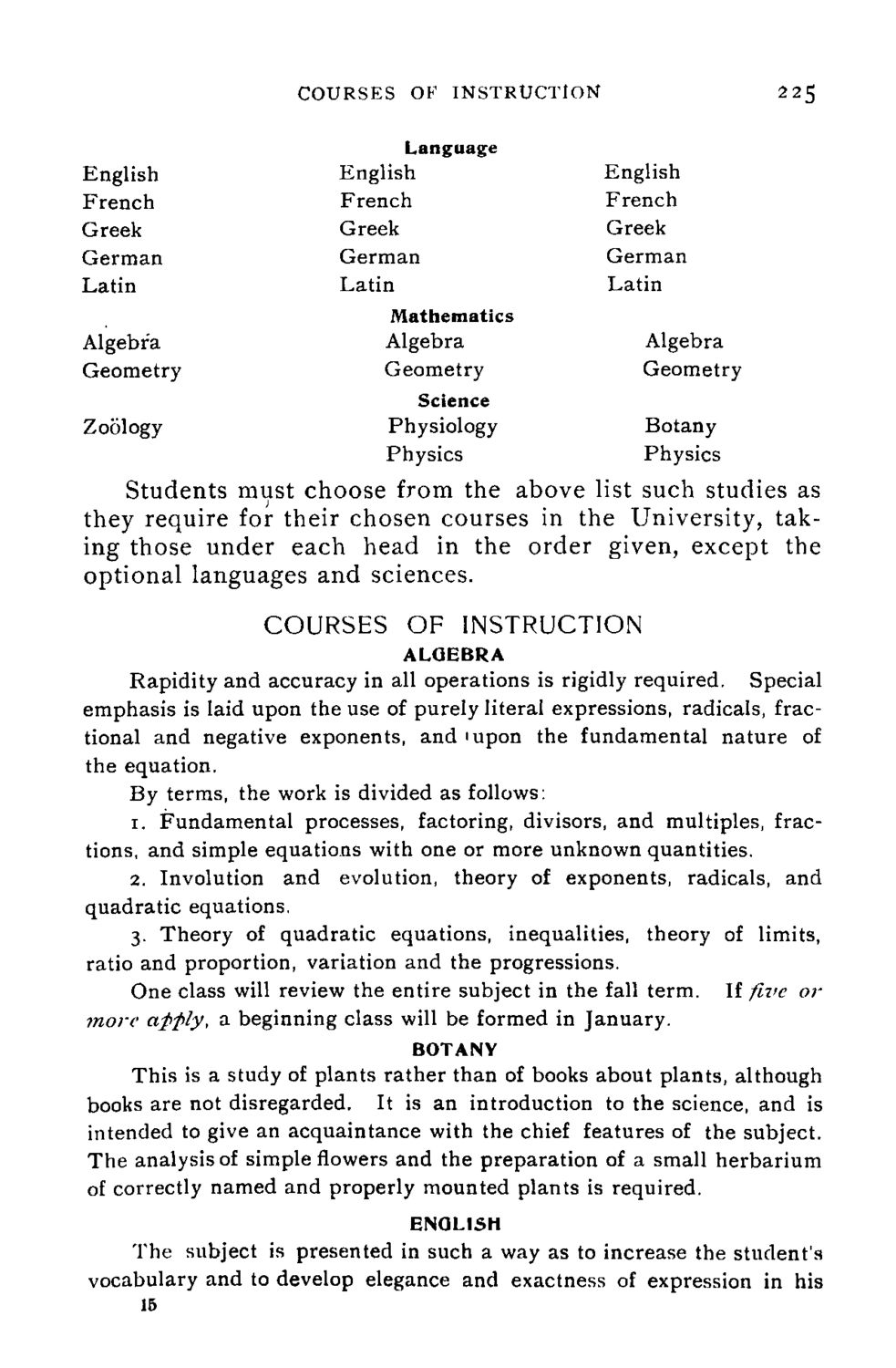| |
| |
Caption: Course Catalog - 1896-1897
This is a reduced-resolution page image for fast online browsing.

EXTRACTED TEXT FROM PAGE:
COURSES OF INSTRUCTION Language English French Greek German Latin Mathematics Algebra Geometry Science Physiology Physics 225 English French Greek German Latin Algebra Geometry Zoology English French Greek German Latin Algebra Geometry Botany Physics Students must choose from the above list such studies as they require for their chosen courses in the University, taking those under each head in the order given, except the optional languages and sciences. COURSES OF INSTRUCTION ALGEBRA Rapidity and accuracy in all operations is rigidly required. Special emphasis is laid upon the use of purely literal expressions, radicals, fractional and negative exponents, and 'upon the fundamental nature of the equation. By terms, the work is divided as follows: 1. Fundamental processes, factoring, divisors, and multiples, fractions, and simple equations with one or more unknown quantities. 2. Involution and evolution, theory of exponents, radicals, and quadratic equations. 3. Theory of quadratic equations, inequalities, theory of limits, ratio and proportion, variation and the progressions. One class will review the entire subject in the fall term. If five or more apfly, a beginning class will be formed in January. BOTANY This is a study of plants rather than of books about plants, although books are not disregarded. It is an introduction to the science, and is intended to give an acquaintance with the chief features of the subject. The analysis of simple flowers and the preparation of a small herbarium of correctly named and properly mounted plants is required. ENGLISH The subject is presented in such a way as to increase the student's vocabulary and to develop elegance and exactness of expression in his 15
| |